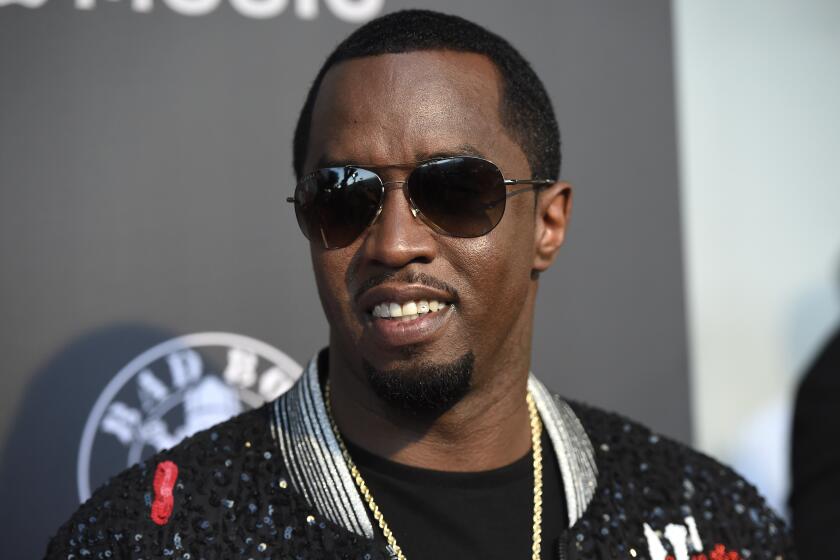I’ll be missing you, indeed.
In a surprising move, hip-hop mogul Sean “Diddy” Combs — long known for taking a hard line with artists signed to Bad Boy Entertainment — has returned publishing rights to some of the artists and songwriters who helped build his powerhouse record label.
He reportedly did it instead of cashing in on millions to sell the rights, which artists such as Bruce Springsteen, Bob Dylan and Shakira have done in recent years, forgoing future royalty payments in favor of large lump sums for the sale of their catalogs.
Read more: ‘Illusion of inclusion’: Diddy sues company behind his liquor brands for discrimination
Bad Boy Records was established with Arista Records in 1993 when the Combs Global mogul still went by Puff Daddy and Puffy. The legendary record label became a bicoastal force in the music industry boasting artists such as late rapper Notorious B.I.G., his widow Faith Evans, R&B crooners 112, the Lox and Mase. Mase’s podcast co-host Cam’ron revealed last week that the “Feel So Good” rapper, who long feuded with Diddy over the publishing rights, “just finished the paper work” to get back them back from his former collaborator.
But, apparently, Mase wasn’t the only one.
According to Billboard and Variety, Diddy “decided to reassign the label’s publishing rights” back to Mase, as well as Evans, 112, the Lox and Biggie’s estate. Details surrounding the deals were not disclosed, but the assets are said to be worth hundreds of millions of dollars. The process started in May 2021, with Diddy reportedly declining a nine-figure offer to sell the Bad Boy music catalog in favor of “giving back to the people who helped build his company,” a source with knowledge of the deal told the BBC. Contracts with “many more” Bad Boy artists are said to be in the works too.
Representatives for Diddy, Mase and Bad Boy Entertainment did not immediately respond Wednesday to The Times’ requests for comment.
Diddy’s unprecedented move, which is likely to have ramifications throughout the recording industry, goes in the face of past models. Record companies typically retain the publishing rights of songs that artists — who are signed to their labels — make during their tenure there. However, the practice has come under scrutiny for years because it often unevenly benefits the companies, lining their coffers more generously than those of the artists themselves. (See Taylor Swift’s long-standing art-versus-commerce dispute with Scooter Braun’s acquisition and sale of her former label, Big Machine Records.)
Read more: Sting said he got $2,000 a day off a rap sample. Diddy took five years to correct him
Bad Boy followed the same model for decades, although Diddy is said to have benevolently paid Biggie out of his own pocket when he signed him and also paid the slain rapper a portion of his publishing rights before his death in 1997. However, the 53-year-old hype-man’s perspective on the matter has seemed to shift — he currently remains embroiled in a separate racial discrimination lawsuit and was dumped by drinks giant Diageo in June for allegedly refusing to honor his commitments. He’s also gearing up to release his upcoming project, “The Love Album: Off the Grid,” on Sept. 15 and is also slated to receive the Global Icon Award at the MTV VMAs on Sept. 12.
“Combs hopes that his unprecedented move will inspire the music industry to follow suit as he continues to be disruptive and change the status quo,” reported Revolt.tv, the cable company and media outlet Diddy co-founded in 2013. “He wants to see more creators flourish and profit as much as possible from their work, hopefully sparking a new way the biz compensates future ones.
“Combs sees this as a part of a larger conversation to further economic empowerment for Black artists and culture,” Revolt.tv’s Isha Thorpe wrote. “Only time will tell if this move does just that. But, for right now, in a business such as music that has historically been about making profits off the backs of creators, Combs’ wish is to, instead, reward the culture and develop a new legacy for Black artists to be paid and recognized for making the music that we all love.”
Read more: Music catalogs are fetching huge deals. Are they overvalued?
On Tuesday, the billionaire re-posted an interview in which he discussed just that — and put his money where his mouth is.
“We have to come to the reality that nobody is coming to save us. No one is coming to save us,” he told an audience at Earn Your Leisure‘s Invest Fest, where he donated $1 million. “Out of all the business revenue in America, only 1% goes to Black businesses. But then there’s an accountability from us because we have a $1.8-trillion buying power and only 2% of that recirculates in our own communities. So we can’t complain … it’s time to change the tone. We have to unify our dollars or else nothing will change. We have to weaponize the almighty Black dollar to save us.”
This story originally appeared in Los Angeles Times.





